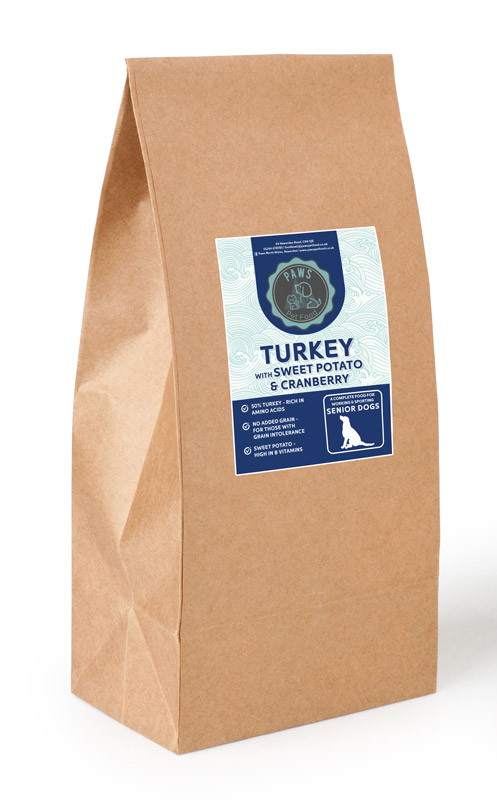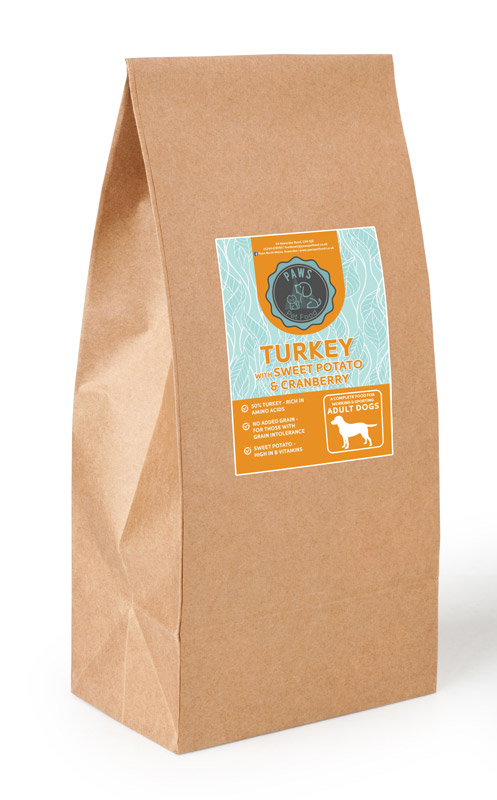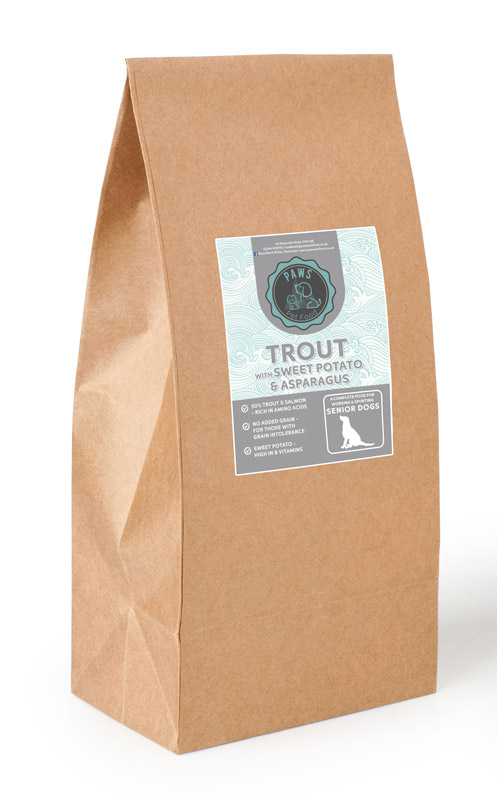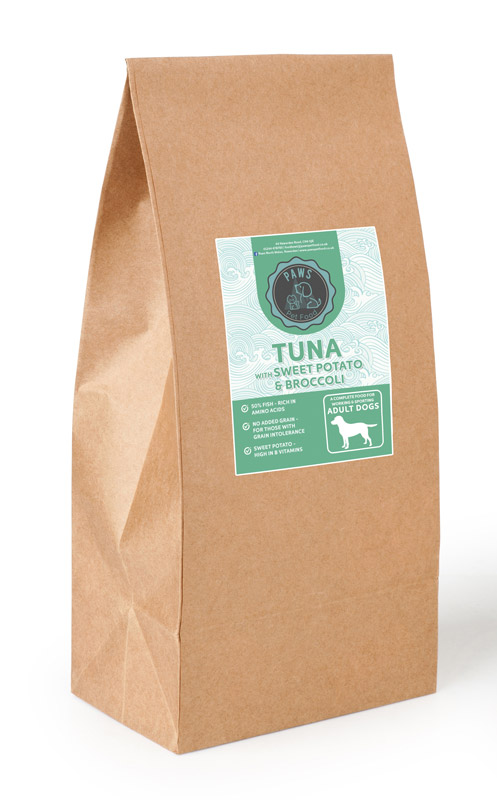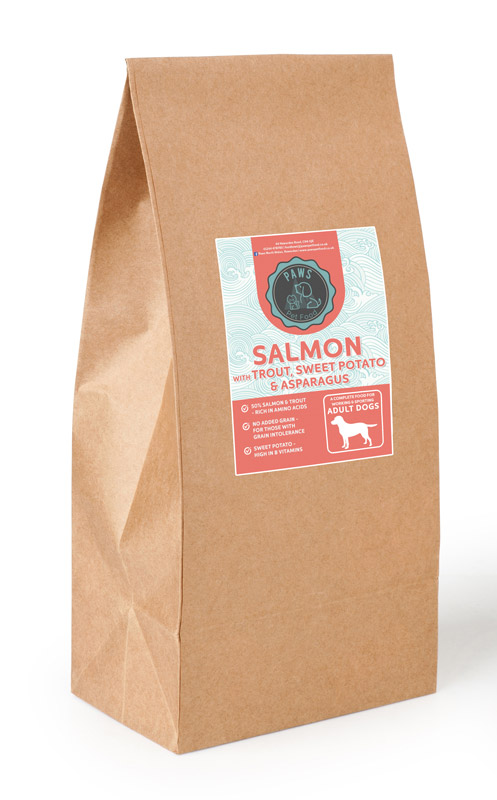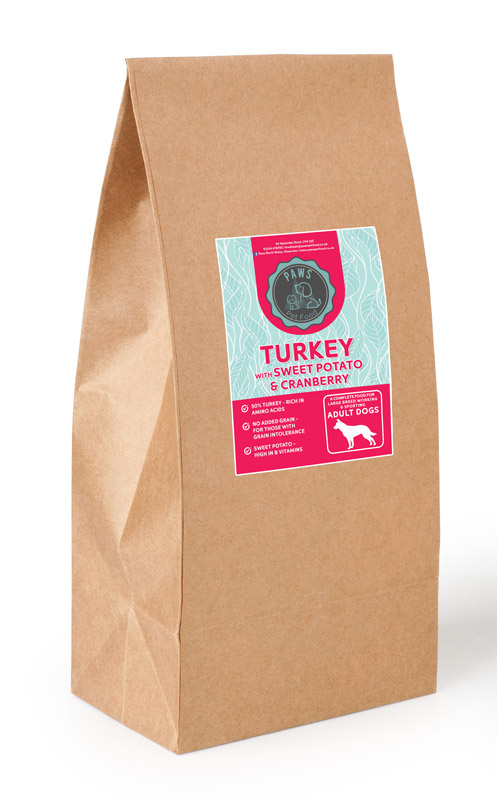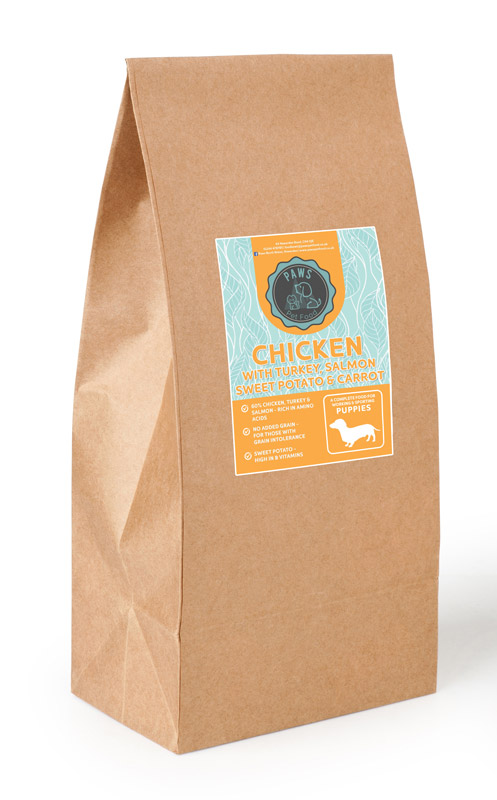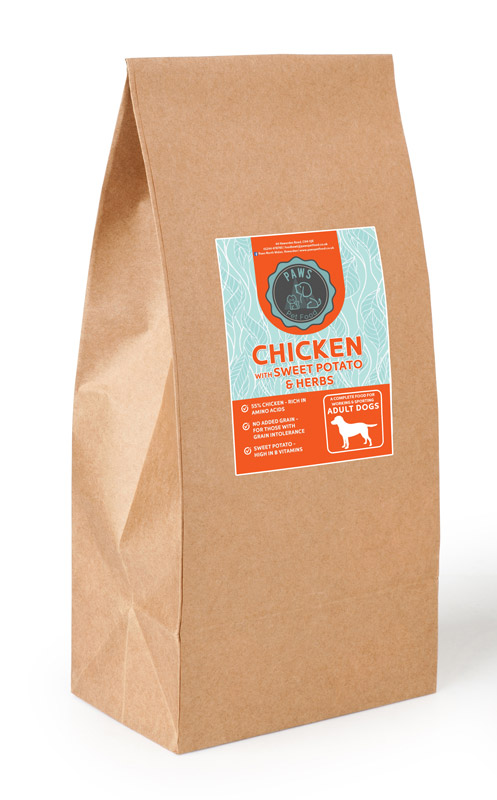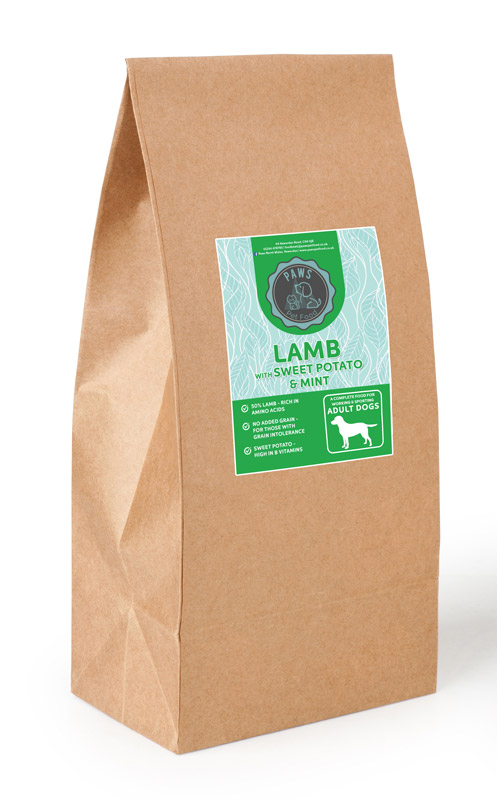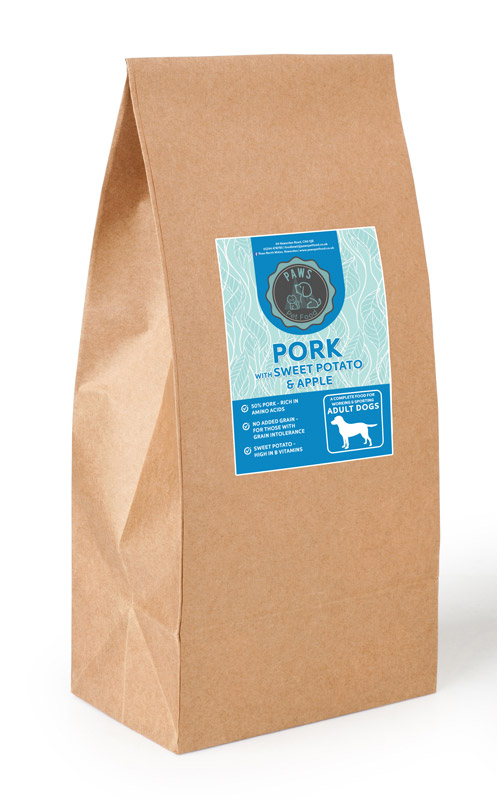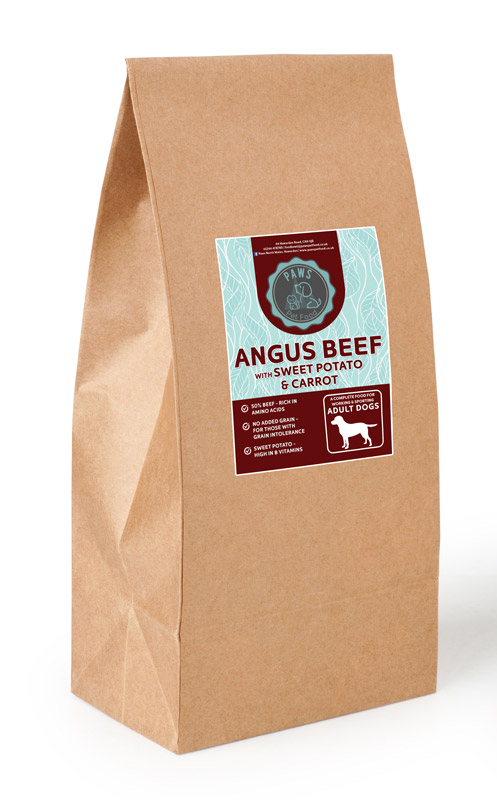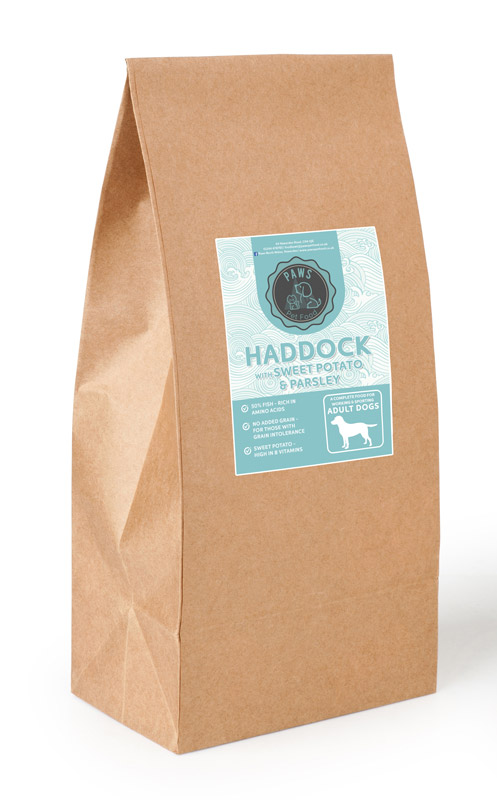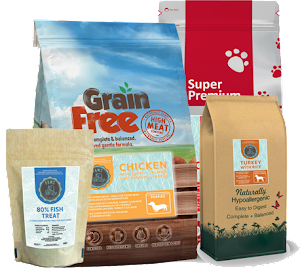A common query from pet owners is “what diet should I feed my dog?”.
With so many dog food brands available to choose from, a decision can be hard to make.
It is important to know about the ingredients required in a dog’s food for optimal health and wellbeing. This not only has an impact on their digestive system but also how shiny their coats are, as well as their energy levels.
It’s crucial to remember that a dog’s diet will vary by individual. Pet dogs are predominantly carnivores that also eat omnivorous foods. However, a dog’s food should be both complete and balanced to ensure it meets its daily nutritional requirements.
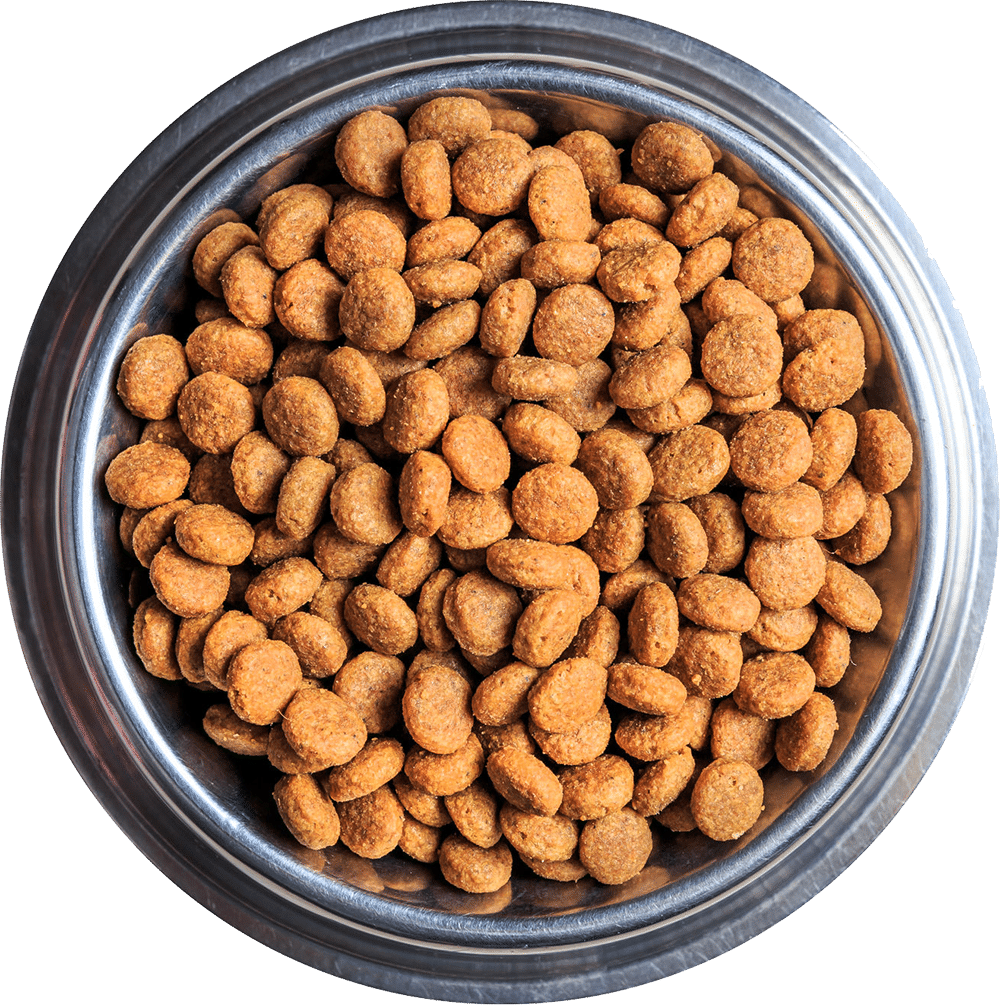
Dry Dog Food
Recent research suggests this is the most common diet fed to dogs by their owners. Dry dog food makes up 71% of the market. A dried diet has a low moisture content of around 8%. The food is extruded into pellets, biscuits or kibbles and often packed in bags or boxes. Meat is usually added in a fresh or dried format. A major advantage of dry food is it can be kept for significantly longer than wet food, which often goes off quicker.
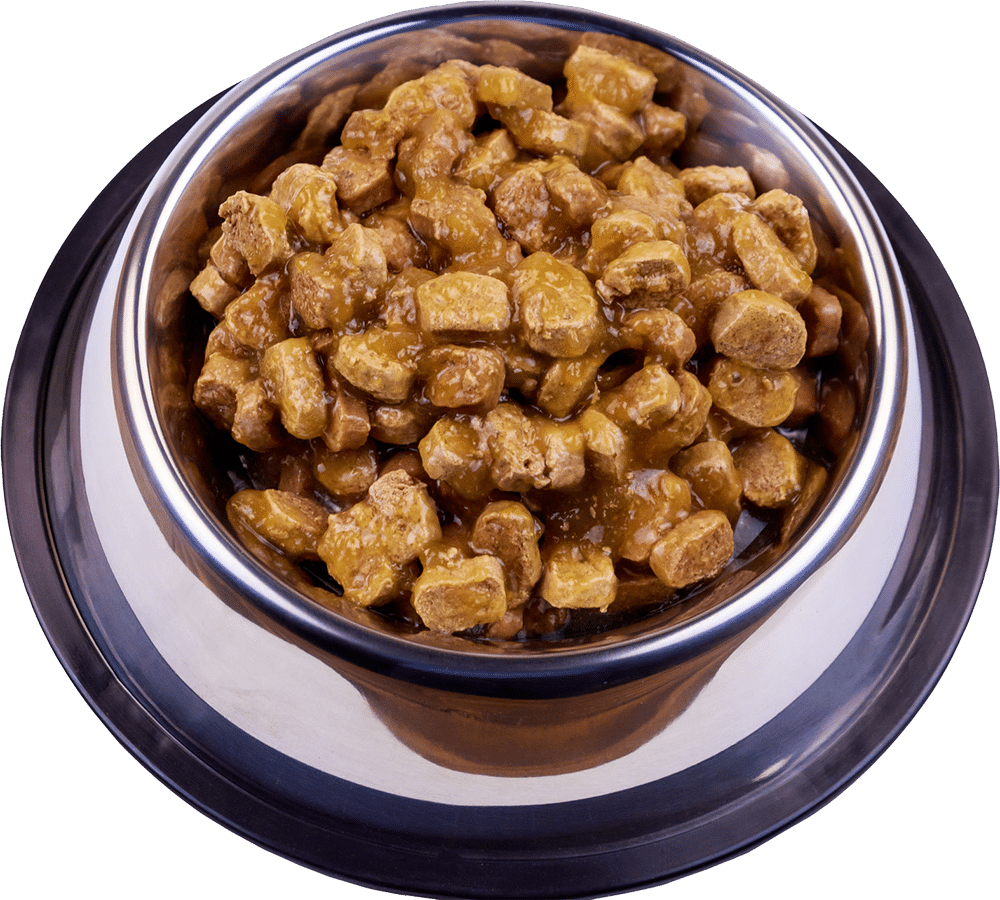
Wet Dog Food
This equates to roughly 33% of the market. This type of food contains a high moisture content, usually cooked at high temperatures to sterilise the food. It is then sealed under pressure and packed into cans, foil trays or pouches. A benefit of wet dog food is it can help to provide a dog with fluid requirements.
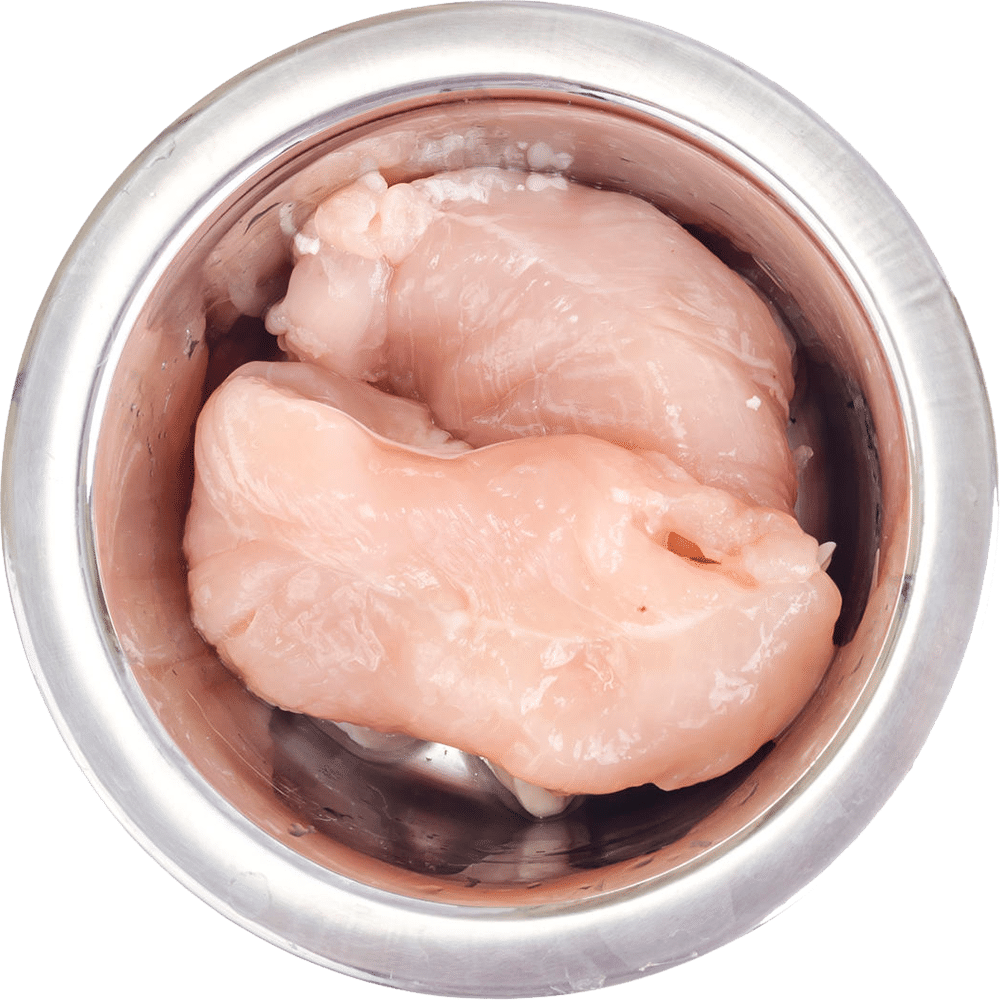
Raw Diet
Commercially prepared raw meat diets make up 5% of the market. This format of food is muscle meat that is often still on the bone and stored frozen. Many owners also use this method to create their own homemade diets. This diet may result in a dog drinking less as the food is given to the dog wet.
How much food does a dog require?
The amount of food in a dog’s diet primarily comes down to its size, breed and age. A vital factor in a dog’s diet is to ensure that they are fed the correct portion of food. If a dog is underweight or overweight, it can lead to health issues throughout their life.
When determining a dog’s size and weight, it is essential to look at their body shape more than weight. You should be able to feel a dog’s ribs when you run your fingers over their side and see a defined waist.
Puppies
The nutrition that a puppy receives is the building blocks to good health throughout their life. Puppies need more calories and higher levels of vitamins, minerals, fats, and protein to aid their development. Generally, puppy foods are suitable for 4 weeks to 12 months, although this is not the same for every dog.
A delicate balance of calcium and phosphorous is crucial to support skeletal development. Whilst also having a nutrient-dense diet to meet their growth requirements and provide them with energy until their next meal. Smaller breeds need more concentrated levels of nutrients, whilst larger breed puppies require less. The reason for this is that different sized breeds reach maturity at different rates.

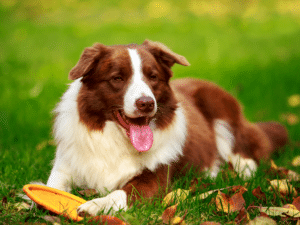
Adult Dogs
Usually, a dog reaches an adult life stage between the age of 12 -18 months. Small and medium-breed dogs need pet food with higher energy content due to having a faster metabolic rate. Foods with high protein, vitamins and minerals are great for smaller and medium-breeds dogs to help develop.
Larger dogs reach adulthood slightly later, at around two years old, and to ensure they don’t put on too much weight, they need food with less concentrated fats. Their diets need more controlled protein, energy, calcium and phosphorous levels to ensure steady growth. Nutrients such as glucosamine are also essential to help support their joints.
Senior Dogs
As a dog begins to age, they will become less active. More rest is required, and it takes longer to recover from exercise, whilst disease and conditions become more prevalent. A dog that is 7 years or above is classed as a senior. This means that their diet has to change to include higher fibre levels and reduced oil and fats. Fat levels are also reduced, whilst protecting the joints with vitamins and minerals such as Omega 3, Glucosamine, MSM, and Chondroitin are higher in priority.

Food Intolerances and Allergies
Pet owners often misunderstand food intolerances as an allergy, as well as interpreting an intestinal upset as an allergy. It is believed that under 10% of all allergic reactions are a consequence of a food allergy. A true allergy is an immunological response to a protein allergen, generally resulting in itchy skin, infections and even hair loss. Most allergies seen in pets are due to fleas, dust mites and environmental issues.
Veterinary practices will be able to offer allergy testing in order to try and identify the potential causes of allergies.
What foods shouldn’t be in a dog’s food?
When it comes to a dog’s diet, not everything is safe for them to eat. Below is a list of common household foods that can cause problems for dogs.
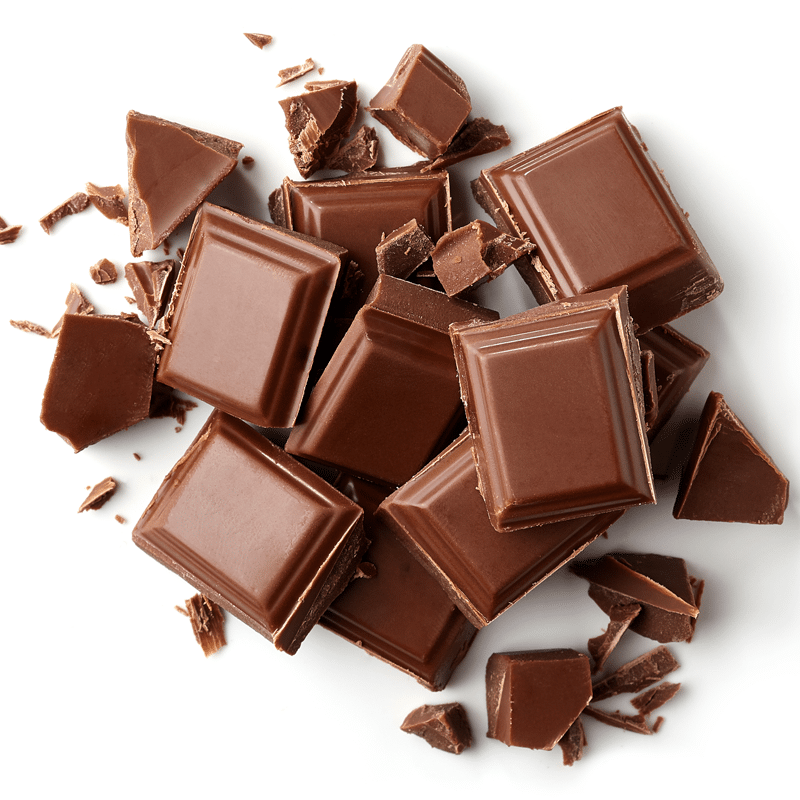
Chocolate
This is now widely recognised as a dangerous practice. All types of chocolate are toxic to dogs. If a small amount is consumed, this can lead to vomiting or diarrhoea. However, larger amounts can lead to fits or potentially fatal.
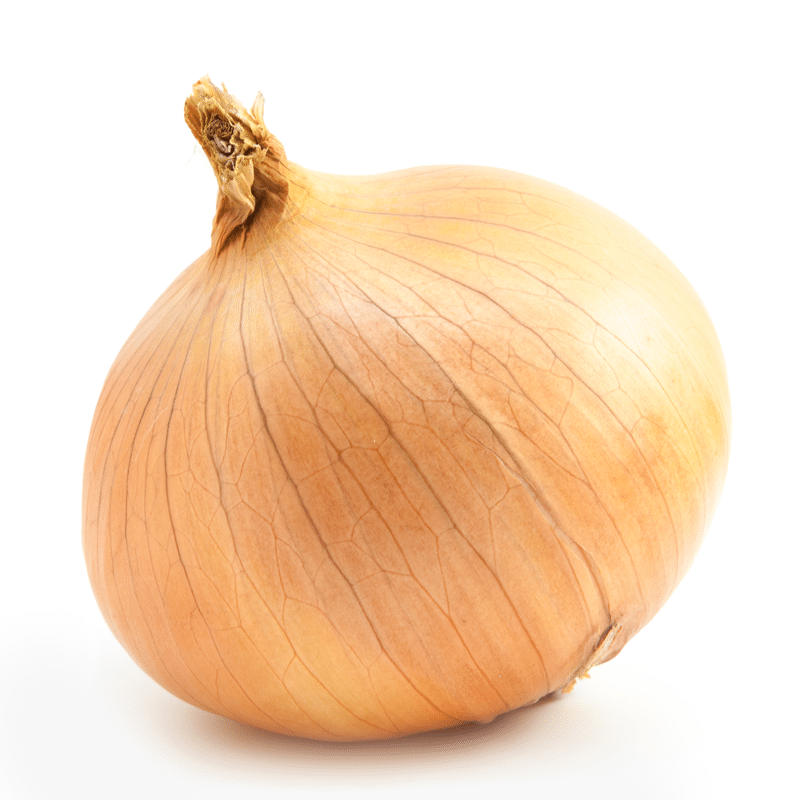
Onions
Regular onion consumption can result in a change to red blood cells that can lead to chronic lethargy, paler gums, weakened limbs and a racing heart.
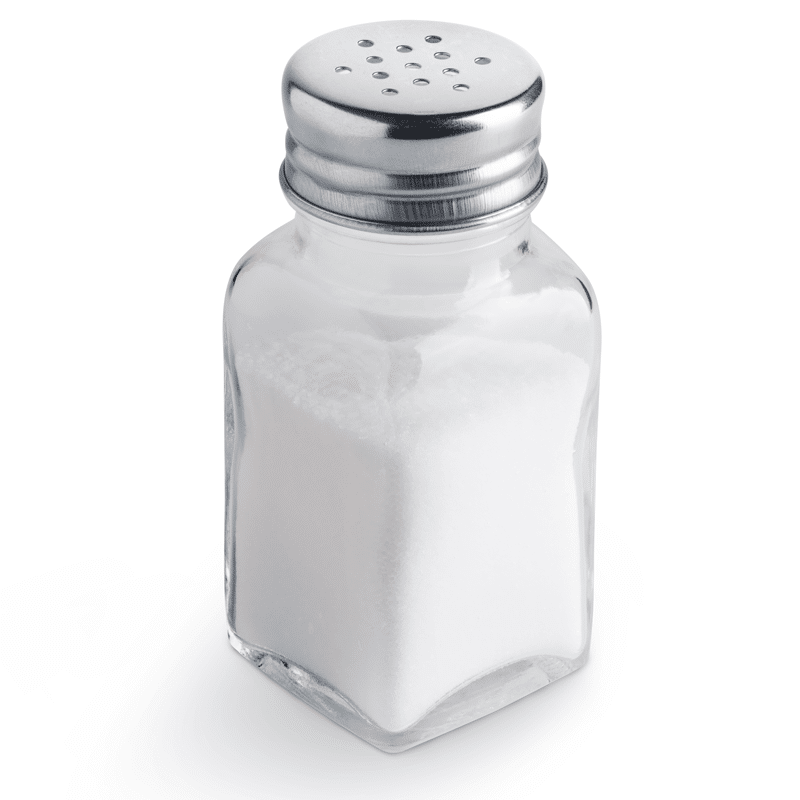
Salt
Dogs do require a certain amount of salt in their diets. However, a diet that is high in salt may lead to higher blood pressure, which can result in heart disease, heart attacks or strokes. This also adds pressure to the kidneys.
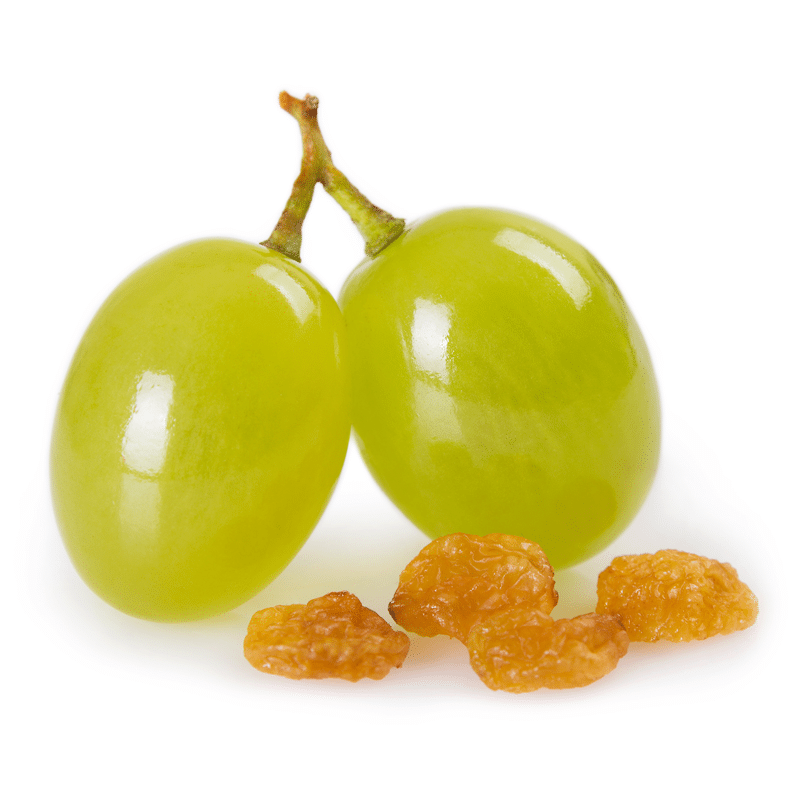
Raisins and Grapes
Both of these foods are poisonous to dogs and can cause symptoms such as vomiting, diarrhoea, lack of urination and, in extreme cases, kidney failure.
Grain Free Dog Food
Grain Free diets continue to be a major trend in the pet food industry. This form of dog food is produced without any grains in it and is particularly popular for dogs with specific food allergies.
Benefits of a Grain Free Dog Food can include:
- Less and smaller stools
- Reduction in shedding
- Improved skin & coat condition
- Fewer digestive upsets
- Reduced itching and scratching
Our Best Value 15kg Bags
free delivery DPD 2-4 days
Our 15kg bags of dog food. Grain Free, Hypoallergenic, Super Premium, Superfood 65 and Working High Energy Sports Dog freshly prepared high meat content pet food. Free Delivery in the UK. Buy our dog food online. You won’t find any added artificial flavors, colors, or preservatives in this dog food.
New customers 10% off their first order if you add code pawspetfood at checkout stage (not for subscriptions)
Love our food? Sign up for a monthly subscription on your product’s page, save money every month and never run out of your pet’s food. Manage your account online; pause or cancel your subscription any time.
Dog Food Articles
Comprehensive Guide: Common Health Concerns in Dogs and How to Address Them
Canine Wellness Guide: Navigating Common Dog Health Concerns and Proactive Care Dogs, like any other living beings, can face a variety of health concerns. It's important for pet owners to be aware of these [...]
Tasty Goodness: Paws Pet Food’s Wheat-Free, Gluten-Free Salmon and Potato Kibble for Big Puppers!
Wheat Free Gluten Free Large Breed Puppy Salmon & Potato Puppy Dog Food Kibble Biscuits 2kg 12kg *Made in Wales* Welcome to a world where your furry friend's health and happiness take [...]
Unleash the Power of Peak Nutrition: The Ultimate Guide to Highest Quality Meaty Mix Dog Food
paws pet food In the world of pet care, providing our four-legged companions with the best nutrition is a top priority. As responsible pet owners, we understand the importance of a balanced [...]
Fueling Furry Champions: Paws Pet Food Grain Free Chicken and Sweet Potato Puppy Kibble
Grain Free Chicken & Sweet Potato Puppy Dog Food Kibble Biscuits 2kg 12kg *Made in Wales* In the heart of Wales, where lush landscapes meet the serenity of nature, Paws Pet Food [...]
Nutrient-Rich Delight: Crafting the Perfect Turkey Brown Rice and Vegetable Dog Food
working dog turkey and rice wet dog food trays In a world where the pursuit of optimal health is not limited to humans, pet owners are increasingly recognizing the importance of providing [...]
Paws Pet Food: Nourishing Your Canine Companion with Sustainable Plant and Vegetable Protein Dog Food
Plant and Vegetable Sustainable Protein Source Adult Dog Food *Made in Wales* In a world where pet owners are increasingly conscious of the impact of their choices on the environment, Paws Pet [...]

















